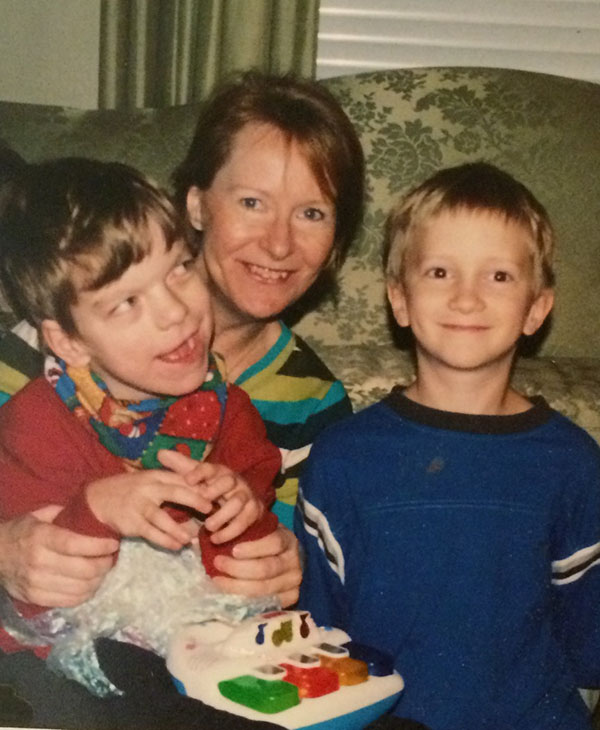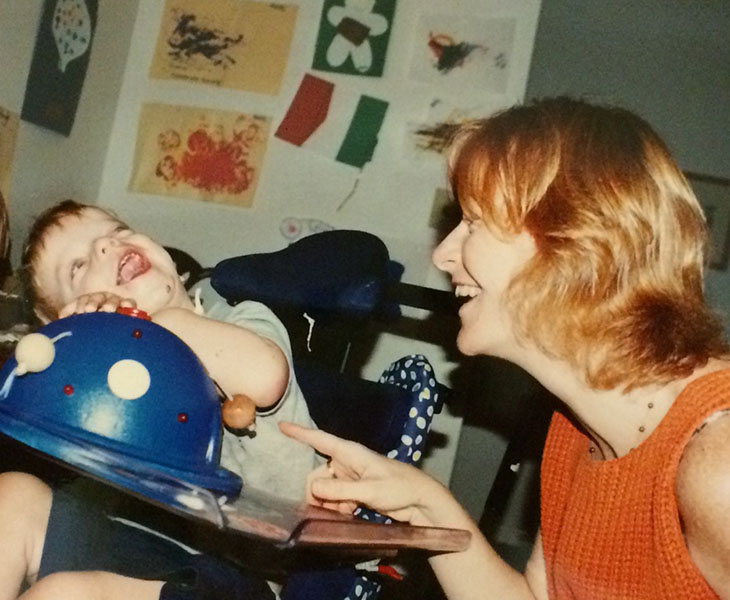Families of medically fragile children afraid state changes could leave their kids without care

RALEIGH (WTVD) -- Families of medically fragile children across North Carolina are worried about the state funding they need for the daily care of their children after proposed changes to the state plan. While the state put a hold on the proposed new waiver program Friday, many questions and concerns remain.
Julia Simmons is a case manager for families with medically fragile children. Her company helps more than 300 families and she is a mother of a medically fragile child herself.
Watch Simmons explain more about her son Woody and his condition.

The funding the families of medically fragile children receive from the state comes from the Community Alternative Program, or CAP/C for children and CAP/DA for adults. The North Carolina Department of Health and Human Safety has proposed a new plan to merge the two programs together, and Simmons said it comes at a cost.
"In the new waiver there will be specific budgets and all of your services will have to meet those budget limits and that's one of our major areas of concern for children," she said.
"With the budgets that the state is proposing, the maximum hours that your child would qualify is 39 hours a week, and that's a drop from up to 70 hours a week in the old waiver," she explained. "I don't know how anybody would be able to hold a full time job on 39 hours a week of care."
Budgets are not the only major change in the waiver program according to Simmons. She tells us she doesn't know what she's going to do or tell families because the proposed plan does not include a nursing level of care for children 18 and older, whereas the old plan did until the age of 21.
Simmons said it's something that would catch a lot of families off guard and put them in a tough spot, including her own because her son Woody turns 18 in August.
"I thought 'well I have a few years to figure all this out'," she said. "So I really felt like I had the rug pulled out from under me, completely."
"We serve over 300 children and their families in many counties in the state of North Carolina and we probably have maybe 30 families in the same situation that I'm finding myself in, so I'm hoping to be able to affect some changes not only for my own family but for other families that would be affected for this policy change as well."
Simmons said families have come together on social media on the issue through a Facebook group for advocates of medically fragile children.
Watch Simmons explain more about her concerns related to the proposed new plan.

"You know we love our children to the very core," Simmons said "and to say that 'here's your option you can either just stay home and care for them by yourself 24-7, or you can move them into an institution and get on with your life' - well my kids are my life, and I would give up this business in a minute if that was the only way I could keep it running, was to put Woody in an institution."
The North Carolina Department of Health and Human Services released a statement and sent out an email to those who expressed concern during the public comment period stating any policy changes are on hold right now. (Keep reading for the statement below.)
"Originally our goal was to make it easier for people to transition from CAP/C to the CAP/DA waiver and that was one of the main reasons for combining, Dave Richard, NC DHHS Deputy Secretary for Medical Assistant, said. "But as we have heard from families over the past month, we recognize that there are things inside of that merge that just aren't going to work well for families, so we decided to suspend our work with CMS for the time being to get together with families, stakeholders, providers and other individuals that are interested, rethink the process that we're going through and then find the best solution going forward."
"What we want is for really, for these families who have made courageous decisions to keep their sons and daughters at home, who have significant disabilities, we want them to be able to continue to do that with the support of this really important waiver program," he said.
Watch the Deputy Secretary for Medical Assistance explain the proposed policy's goal.

Richard said DHHS received more than 400 comments and that the department is now undergoing the process of reviewing them all before taking any next steps.
"We've been reviewing them all this week and will continue to do that early next week," he said. "We're getting together with our team, we're doing so [Friday] afternoon, we'll do again early next week, and so what we want to do is put together a plan where we can invite families and other individuals to come meet with us, to spend time talking about what options we have, and let us work together to find the best path forward.
"So by the end of next week we'll be able to do is set out a benchmarks for how we'll manage that, and how we get people involved in the process.
This is the statement from Dave Richard, NC DHHS Deputy Secretary for Medical Assistant, sent out via email Friday:
Thank you for providing direct feedback to me concerning the CAP/C policy recommendations. As a result of comments from you and many others, we have decided to suspend work on approval of waiver changes while we work with stakeholders to find the best solution going forward. Below is the statement we have posted to our website concerning this change.
Again, thank you for taking the time to write us.
Dave
A core value of DHHS and the Medicaid program is our collaboration with stakeholders. The public comment period which began on April 6 is designed to gain critical feedback as we work to improve our program. We received more than 400 individual comments regarding the proposed policy changes for CAP/C and CAP/DA, which have helped us gain a better understanding of how changes may impact families.
Upon review of the concerns expressed, DHHS has decided to suspend the waiver approval process with the Centers for Medicare & Medicaid Services while we work with stakeholders - families, providers and advocates - to address those concerns.
We will communicate our process for involving stakeholders by June 3. Our goal is to work with the stakeholder community to address those concerns and develop policy that continues to provide support for children and adolescents served by the program within the guidelines for home- and community-based waivers and other Medicaid programs for children and adolescents.
We greatly appreciate the public participation in the process, particularly the families who shared the stories of how CAP/C has provided support for their families.
We look forward to finding the most appropriate path forward.


























